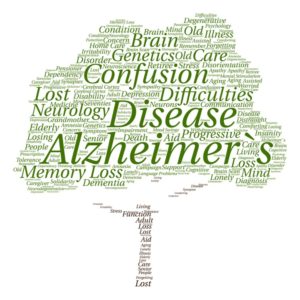What is the Best Way to Ensure a Parent with Late Stage Alzheimer’s Eats Well?
The late stage of Alzheimer’s disease could last anywhere from a few weeks to years. The transition to the late stage brings with it many new struggles for your elderly parent and for their elderly care providers. One of the problems elderly care providers may face is helping your parent to eat well.

Elderly Care Seattle WA – What is the Best Way to Ensure a Parent with Late Stage Alzheimer’s Eats Well?
People with late stage Alzheimer’s disease often have problems eating because they do not remember to eat, have lost interest in eating, have problems swallowing, are unable to cook, or do not eat enough different kinds of food. When this happens, your parent may not get enough of the nutrients they need to remain healthy.
If you’re struggling with making certain your parent eats well, here are some tips that may help.
Meal Times
Following a set schedule for meals may help your parent’s digestive system to get on a schedule and prompt them to be hungry at the same times each day. Use colorful plates that draw your parent’s interest and may make it easier to see the food. The eating area should be quiet and peaceful so that there are no distractions.
Planning Foods
When choosing foods, look for ones that are high in both nutrients and calories to ensure your parent gets enough of both. Protein shakes are a good option to help meet nutritional needs. They can be purchased pre-made or you can buy protein powder to make shakes at home. Your parent may also have an easier time eating finger foods, like small sandwiches, fresh fruit, cheese, and vegetables. Also, plan to serve a bigger meal at breakfast time since it is the first meal of the day and your parent may be able to eat more.
Dealing with Swallowing Issues
Sometimes people with late stage Alzheimer’s have trouble swallowing and may choke on their food. This puts them at risk for getting food in their lungs, which can cause pneumonia. To make swallowing easier, serve soft foods and make sure foods are cut into small pieces. You can also try grinding foods in a blender. Offer cold liquids instead of hot because cold liquids are easier to swallow. Also, a straw can make swallowing more difficult, so offer small sips of liquids instead. Thin drinks are also harder to swallow. There are thickening agents available at the pharmacy that can be added to liquids to make them thicker and easier to swallow.
Get Help
If you notice your parent is losing a lot of weight, be sure to talk to the doctor. Your parent’s doctor may suggest supplements or refer you to a dietician for help. Planning, preparing, and monitoring meals for a parent with late stage Alzheimer’s can be overwhelming and tiring. Hiring an elderly care provider can help lighten your load. An elderly care provider can visit your parent’s home at meal times to assist with preparing meals and sit with your parent while they eat.
Sources: https://www.alz.org/care/alzheimers-late-end-stage-caregiving.asp
https://www.nia.nih.gov/alzheimers/publication/coping-last-stages-ad/coping-late-stage-ad
If you or an aging loved one are considering Elderly Care Services in Seattle WA, contact the caring staff at Hospitality Home Care today. Call us at (206) 966-6552.
- Is Chocolate a Healthy Valentine’s Day Treat? - February 1, 2018
- Preventing Hip Fractures in Elders - January 24, 2018
- Ways to Work Out When It’s Too Cold to Go Outside - January 18, 2018